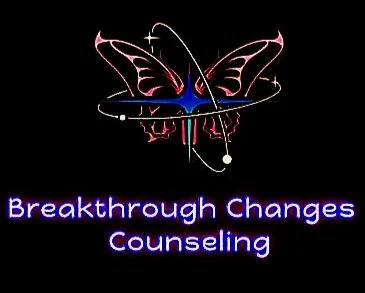Our Services
Feeling overwhelmed, stressed, or just in need of someone to talk to who truly understands? Schedule a session with our compassionate and dedicated professionals, and together, let's work through the various challenges that life throws your way, side by side. We are genuinely here to help you make the breakthrough changes in your life that you desire and deserve. Your journey toward a healthier mindset and a brighter future can start with us!
We offer a range of services to help you achieve meaningful, positive changes in your life.
Individual Therapy
Individual therapy (also known as psychotherapy or counseling) is a one-on-one, confidential process between a therapist and a client. Its goal is to help individuals understand their thoughts, feelings, and behaviors to cope more effectively with life's challenges, particularly mental health diagnoses such as depression, anxiety, PTSD, OCD, personality disorders, and more. Therapy is tailored to each person's needs and can use one or more treatment modalities or approaches. (See Modalities/Methods for more information about what approaches could be used.)
Individual therapy is highly flexible and can be customized using one or multiple modalities depending on the client’s unique diagnosis, goals, and preferences. Many therapists integrate several approaches for a more comprehensive treatment plan, especially when addressing complex or co-occurring disorders.
Couples and relationship therapy is a form of psychotherapy focused on improving communication, resolving conflict, rebuilding trust, and strengthening emotional bonds between people in a relationship. It typically involves two people in a relational unit (e.g., romantic partners, family members, or close interpersonal relationships) working with a therapist to address interpersonal challenges.
This therapy is not limited to married or romantic couples—it can be beneficial in a wide range of relationship types, including non-romantic relationships.
Types of Relationships This Therapy Supports
Romantic Couples (Married or Unmarried)
Engaged Couples (Premarital Counseling)
Divorcing or Separating Couples (Discernment or Co-Parenting Counseling)
Non-Monogamous/Polyamorous Relationships
Same-Sex/LGBTQ+ Couples
Family Member Relationships
Friendships or Roommate Relationships
Goals of Couples and Relationship Therapy
Improve communication and conflict resolution
Rebuild or deepen emotional connection
Address specific issues (e.g., infidelity, parenting differences, financial stress)
Navigate life transitions (e.g., moving, illness, loss, career change)
Enhance intimacy and trust
Establish healthy boundaries
Couple/Relationship Therapy
Family therapy (or family counseling) is a form of psychotherapy that involves working with three or more family members to improve communication, resolve conflicts, and support one another through challenges. It focuses on how the family system functions as a whole rather than placing the problem on one individual.
Family therapy can be short-term or longer-term, depending on the issues at hand. It often includes all or most members of a family unit but can also work with subgroups (e.g., parent-child pairs, siblings).
Some of the issues addressed in Family Therapy (not limited to these issues)
Mental Health Disorders Affecting the Family
Parent-Child Conflict or Behavioral Issues
Divorce, Separation, and Co-Parenting Challenges
Grief, Loss, or Chronic Illness
Substance Abuse and Addiction
Trauma or Abuse History
Communication Breakdowns or Estrangement
Family Therapy
Group Therapy
Group therapy is a form of psychotherapy where one or more trained therapists work with a group of individuals simultaneously. The group is typically composed of people who share common issues (such as depression, anxiety, addiction, trauma, grief, or stress) or similar goals (e.g., improving communication, relationship skills, or managing emotions).
Unlike individual therapy, group therapy emphasizes interaction and mutual support. The therapist facilitates the group dynamics, but the group members themselves play a significant role in each other’s healing process.
Structure:
Sessions typically range from 3 to 12 participants, meeting on a regular basis (weekly, bi-weekly, etc.).
A typical session lasts around 1 to 2 hours and can continue for a few months or longer, depending on the goals of the group.
Therapist’s Role:
The therapist’s role is to guide discussions, set boundaries, maintain a safe environment, and facilitate exercises that promote growth. They may also intervene in moments of conflict or emotional distress, ensuring the group remains respectful and productive.
Group Dynamics:
Group members are encouraged to share their thoughts, feelings, and experiences.
Feedback from others is typically constructive and aimed at helping individuals gain new perspectives and insights.
Confidentiality:
Everything shared within the group remains confidential, creating a safe space for vulnerability and trust.
Types of Groups:
Therapeutic groups: Led by a trained professional and focused on mental health treatment.
Support groups: Peer-led, providing emotional support for shared experiences (e.g., grief support, addiction recovery).
Skill-building groups: Focused on improving specific areas, such as communication skills or anger management.
Case Management
Case management is a professional service where a case manager (usually a social worker, counselor, or healthcare professional) works with individuals to coordinate and manage their care. This process involves assessing needs, creating personalized care plans, and helping individuals access necessary services and resources, whether for health, mental health, housing, or other social support systems. The case manager would help work through the barriers that one is facing like applying for jobs, finding resources, practice/encourage coping skills, and much more.
Benefits of Case Management
Holistic Support
Comprehensive Approach: Case management takes a whole-person approach by addressing a person’s physical, mental, social, and economic needs. It doesn’t just focus on one aspect of a person’s life but looks at everything that might be affecting their well-being. This holistic care model ensures that individuals receive the support they need across all areas of life.
Coordination of Care
Case managers coordinate all the different services an individual might need. This ensures there is no duplication of services or gaps in care. For example, an individual might need mental health therapy, housing assistance, and employment training—all of which need to be managed and coordinated to avoid overlap or missed opportunities.
Personalized Care Plans
Every individual has unique challenges and goals. Case management allows for tailored care, ensuring that each person receives a plan that is specifically suited to their situation. Whether someone is recovering from addiction, managing a chronic illness, or seeking housing, the case plan will be designed to meet those needs.
Advocacy and Empowerment
Case managers often act as advocates for their clients, especially in navigating complex systems (e.g., healthcare, social services, housing). They ensure that clients receive the services and support they are entitled to.
They also empower clients by helping them understand their rights, make informed decisions, and become more self-sufficient in managing their care.
Improved Access to Resources
Many individuals face barriers to accessing necessary services, whether due to lack of knowledge, financial constraints, or logistical challenges. Case managers help bridge that gap by connecting clients with vital community resources and ensuring that they receive appropriate care.
Reduction in Crisis Situations
By proactively managing care and addressing issues before they escalate, case managers help prevent crises. For example, someone with mental health needs might avoid a psychiatric emergency because the case manager is ensuring they stay on top of their therapy and medication.
Better Health and Life Outcomes
Individuals involved in case management often experience improved health and better life outcomes. The structure and support provided can reduce hospitalizations, enhance recovery rates, increase employment, and improve overall quality of life.
Cost-Effectiveness
Effective case management can also be cost-effective. By helping individuals navigate services efficiently, case managers can reduce wasted resources, prevent unnecessary hospital visits, and ensure that people receive care at the right time and in the right setting.
Case management is a critical service that ensures individuals have the support and resources they need to navigate complex systems and achieve their personal goals. It’s particularly helpful for people facing multiple challenges—whether related to mental health, healthcare, addiction, or social circumstances. With personalized care and an emphasis on coordinated services, case management can greatly improve an individual's quality of life and support their path to greater independence and stability.
Presentations/Speaking Engagements
Presentations or speaking engagements involve conveying information, ideas, or research to an audience in a structured format. These can take various forms, from formal lectures and workshops to informal talks or panel discussions. The purpose is to educate, raise awareness, or provide support on mental health issues, and it can be targeted to a range of audiences such as students, professionals, caregivers, or the general public.
Some topics but not limited to…
Understanding Mental Health: Definitions and Stigma
Mental Health in the Workplace
Managing Stress and Anxiety
Depression: Symptoms, Causes, and Treatment
Mental Health and Social Media
Suicide Prevention and Awareness
Mental Health in Children and Adolescents
Trauma and Post-Traumatic Stress Disorder (PTSD)
Addiction and Mental Health
Self-Care and Mental Wellness
Psychotherapy and Counseling: Different Approaches
Contact Us
Are you interested in working together with us? If so, please take a moment to fill out some information, and we will be in touch with you shortly. We can’t wait to hear from you and to explore how we can assist you on your journey!






